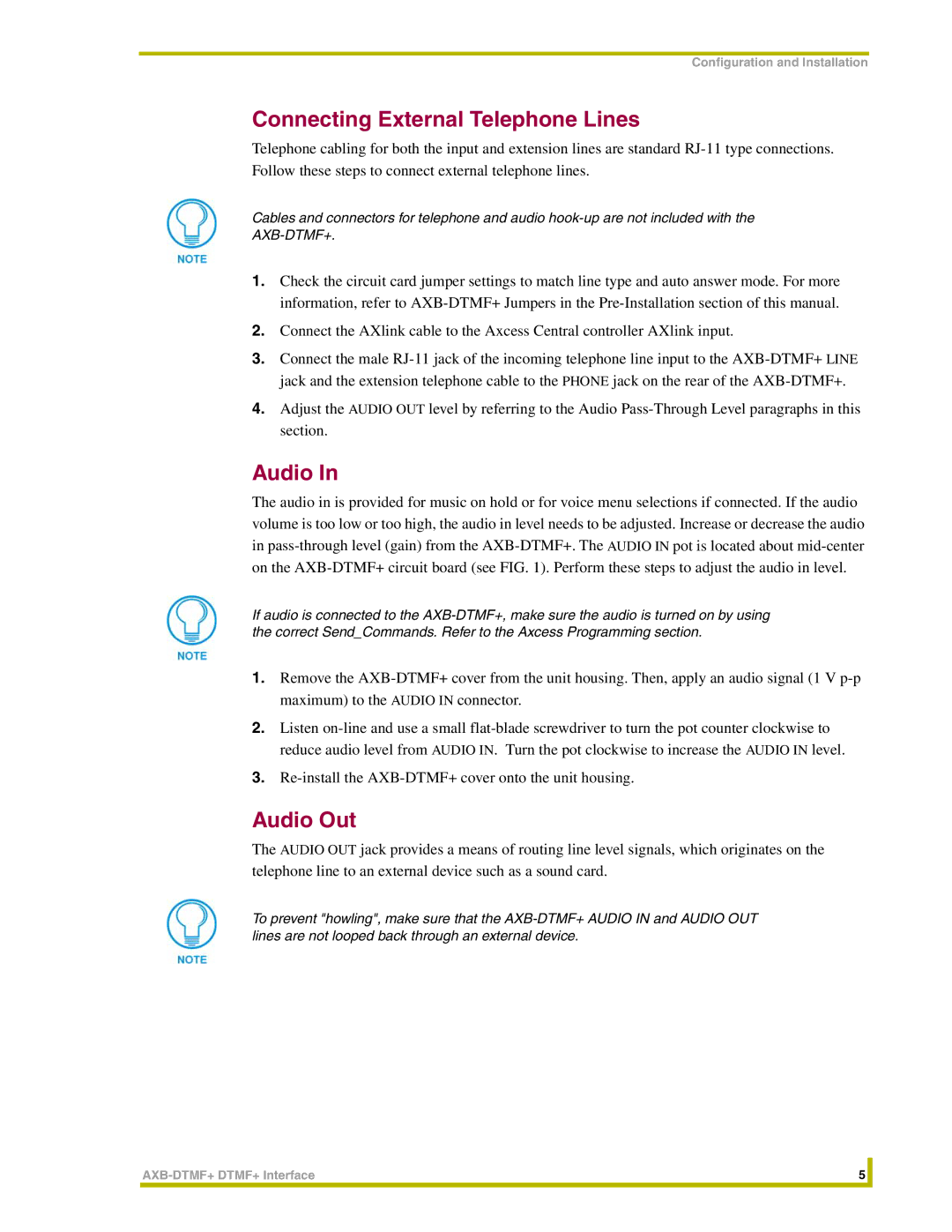Configuration and Installation
Connecting External Telephone Lines
Telephone cabling for both the input and extension lines are standard RJ-11 type connections.
Follow these steps to connect external telephone lines.
Cables and connectors for telephone and audio hook-up are not included with the AXB-DTMF+.
1.Check the circuit card jumper settings to match line type and auto answer mode. For more information, refer to AXB-DTMF+ Jumpers in the Pre-Installation section of this manual.
2.Connect the AXlink cable to the Axcess Central controller AXlink input.
3.Connect the male RJ-11 jack of the incoming telephone line input to the AXB-DTMF+ LINE jack and the extension telephone cable to the PHONE jack on the rear of the AXB-DTMF+.
4.Adjust the AUDIO OUT level by referring to the Audio Pass-Through Level paragraphs in this section.
Audio In
The audio in is provided for music on hold or for voice menu selections if connected. If the audio volume is too low or too high, the audio in level needs to be adjusted. Increase or decrease the audio in pass-through level (gain) from the AXB-DTMF+. The AUDIO IN pot is located about mid-center on the AXB-DTMF+ circuit board (see FIG. 1). Perform these steps to adjust the audio in level.
If audio is connected to the AXB-DTMF+, make sure the audio is turned on by using the correct Send_Commands. Refer to the Axcess Programming section.
1.Remove the AXB-DTMF+ cover from the unit housing. Then, apply an audio signal (1 V p-p maximum) to the AUDIO IN connector.
2.Listen on-line and use a small flat-blade screwdriver to turn the pot counter clockwise to reduce audio level from AUDIO IN. Turn the pot clockwise to increase the AUDIO IN level.
3.Re-install the AXB-DTMF+ cover onto the unit housing.
Audio Out
The AUDIO OUT jack provides a means of routing line level signals, which originates on the telephone line to an external device such as a sound card.
To prevent "howling", make sure that the AXB-DTMF+ AUDIO IN and AUDIO OUT lines are not looped back through an external device.

